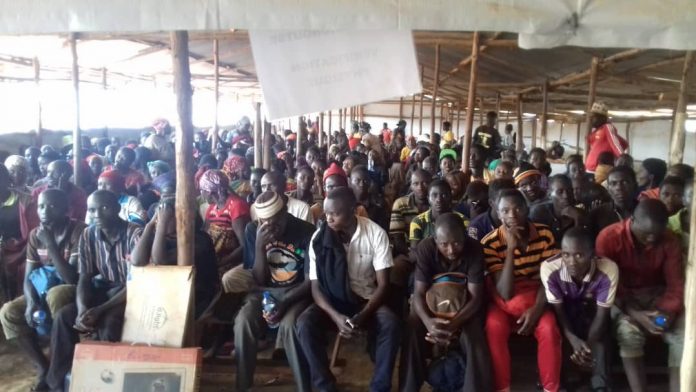296 families were repatriated including 337 men and 253 women respectively from the provinces of Ruyigi (251) Makamba (163) Cankuzo (40) Rutana (48) Kirundo (10), Muyinga (51) Gitega (6), Bururi (14), Karusi (6) and Muramvya (1) PHOTO| FILE.
At least 590 Burundians have been repatriated from the Nduta camp located in the neighboring Tanzania, according to the Burundian government all those who arrived in the country this Thursday 3rd September left Tanzania voluntarily.
“They constitute 296 families including 337 men and 253 women respectively from the provinces of Ruyigi (251) Makamba (163) Cankuzo (40) Rutana (48) Kirundo (10), Muyinga (51) Gitega (6), Bururi (14), Karusi (6) and Muramvya (1),” said the Burundi police spokesman Pierre Nkurikiye.
The repatriation comes after Tanzania’s home affairs minister Kangi Lugola last month announced that all Burundians will be repatriated starting from this month (October) and that “no Burundian will be received as an asylum seeker in Tanzania since their country is peaceful now”.
Political crisis erupted in 2015 after Burundi’s incumbent president Pierre Nkurunziza vied for another term in the office, the move sparked protests with hundreds of thousand fleeing to the neighboring countries.
In August 2017 representatives of Burundi and Tanzanian government alongside the UN refugee agency held a tripartite meeting to facilitate voluntary repatriation of Burundian refugees from Tanzania.
Tanzania as of last year hosted more than 3 million refugees and asylum seekers, of which more than two hundred thousand were Burundian refugees with majority of whom have arrived from Burundi since April 2015.
Since 2017 Thousands of Burundian refugees from neighboring Tanzania returned to their home country under the tripartite agreement between Tanzanian government, UNHCR and Burundi.
The UNHCR Mandate for Voluntary repatriation have been refined and extended from the initial consideration that UNHCR’s responsibility ended when repatriants crossed the border back into their home country, to a substantive involvement with regard to facilitating to securing protection and providing assistance to returnees in the country of origin.
The UN refugee agency called on the refugee hosting countries to carry out the repatriation exercise voluntarily and not against refugees’ will.

